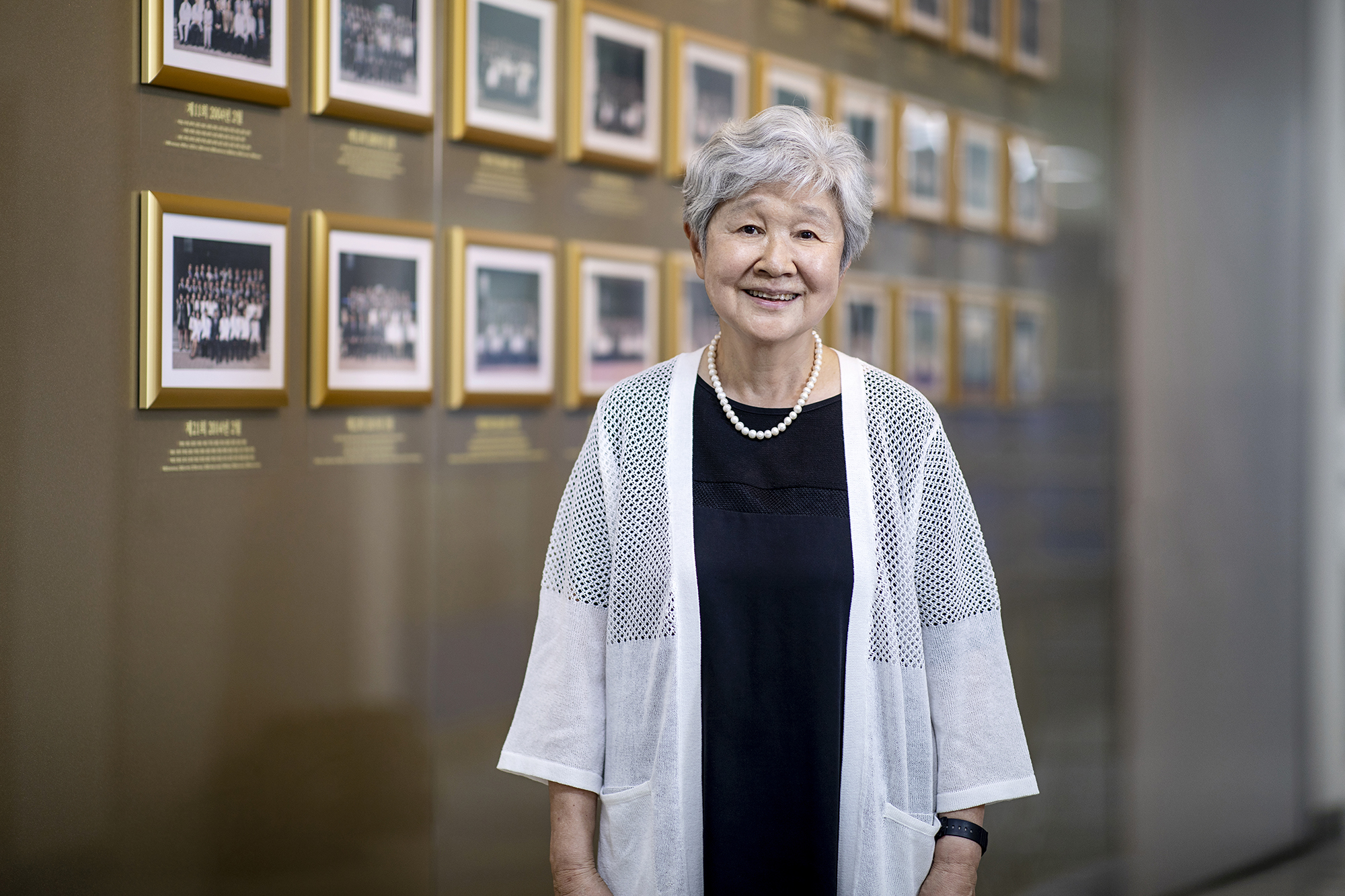- The Most Beautiful Companionship September 02, 2021
-
Hyon-Ju Kim (Medicine, Entering Class of '61), Godmother of Patients with Rare Diseases and Their Families
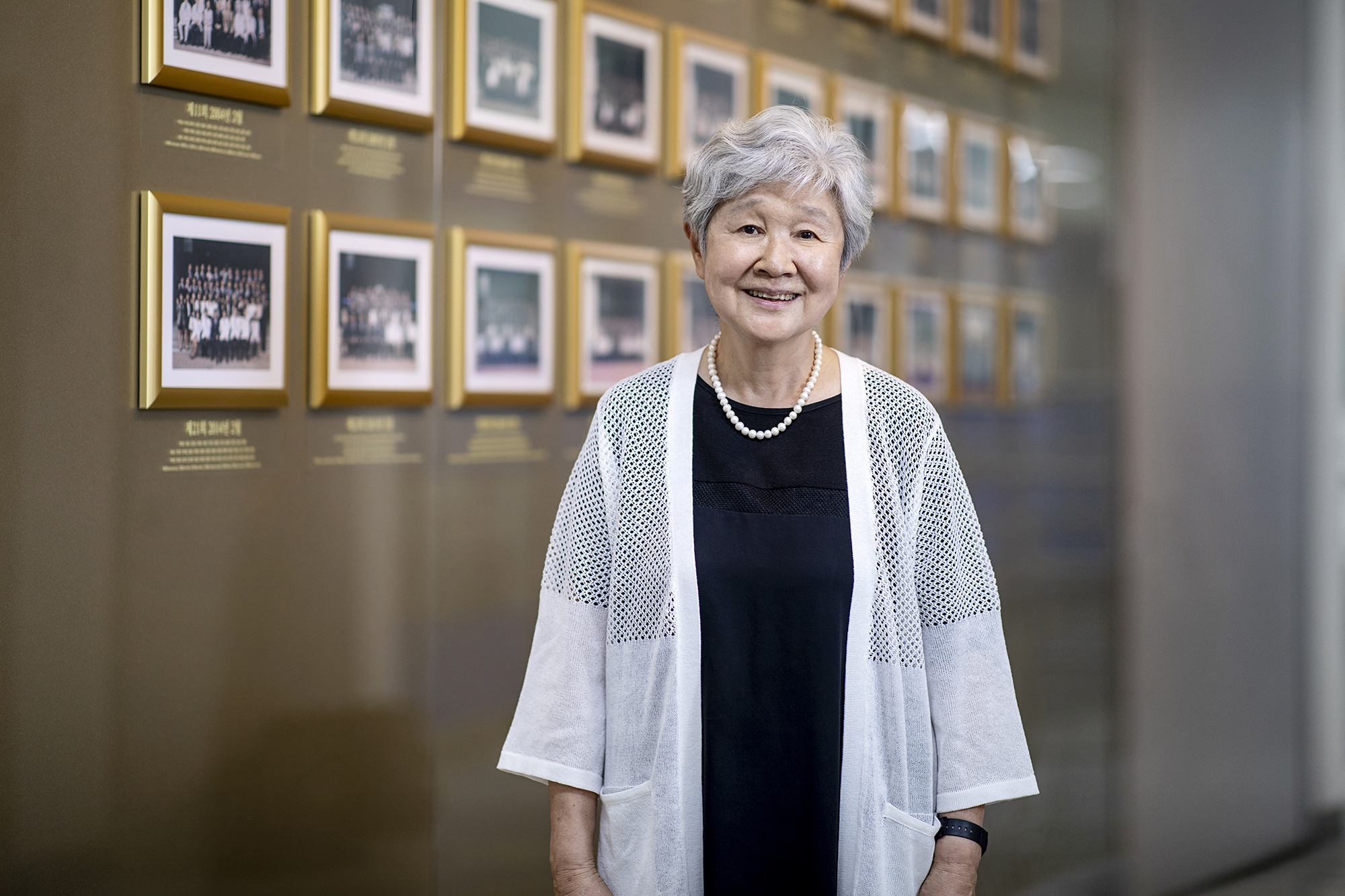
The First-Generation Pioneer of Rare Disease Treatment in South Korea
Until 20 years ago, the idea of a "rare disease" was unfamiliar within South Korean society. The unawareness of the existence of such gave pain to patients with rare diseases and their families, as they wandered around various hospitals with little chance of even knowing the name of their diseases, let alone getting proper diagnosis and treatment. While there are more than 8,000 types of rare diseases identified so far, there are still no effective treatments developed for most of them as they are not marketable for sale by pharmaceutical companies, with the extensive time required to give an accurate diagnosis for each patient. As such, despite the rapid development of medical technology, rare diseases are still causing disabilities with incurable chronic conditions for more than 800,000 patients as of now. Since most of these rare diseases are hereditary, with chances of being passed down to subsequent generations, patients with rare diseases would inevitably have to live in pain and fear.
Amidst such adversities, there is an individual who has devoted her life to taking care of patients while improving the poor social perception of rare diseases in South Korea, with a significant contribution to the issue of rare diseases being raised from the blind spot of social support. Such a figure is none other than Yonsei alumnus Hyon-Ju Kim, currently serving as the chairperson of the Korean Foundation for Rare Disease (KFRD). With Dr. Kim awarded the highest honor for her life-long dedication at the 2019 Korea Social Contribution Grand Award, she is known as a pioneer in the field of medicine for rare diseases as well as a godmother to rare disease patients.
Campus Life, Where Interest for Basic Medicine Grew
It was 1961 when Dr. Hyon-Ju Kim entered Yonsei University. Kim was one of the few female students who enrolled in medical school, a rare career path for women back then. However, growing up seeing numerous doctors within her family and her father's philosophy that did not see gender as an obstacle to pursuing medicine, it was not a hard decision for her to make. Above all, she was eager to challenge.
"Back then, even at Seoul National University College of Medicine, there were only one or two female students out of 150. There was a low perception in society that doctors were something women could do. It was a recommendation from my high school senior who entered Yonsei University College of Medicine that triggered my interest. She told me that the percentage of female students at Yonsei was around 10%. That made me think Yonsei was an open and leading university."
Dr. Kim was an exemplary student who graduated from prestigious middle and high schools with honors and continued to excel among her peers even after entering medical school. Immersed in learning, she was a student most focused during lectures while also being a student who would ask the most questions. This hardworking student decided to study genetics as a profession as she attended a lecture on physiology by Professor Hong Suk-Ki.
"I always thought there were only two career paths available after graduating from medical school. The first was to be a clinical physician who diagnoses, prescribes, and treats patients, and the second was to be an educator for aspiring doctors. The latter can be further divided into fields such as basic medicine and clinical medicine such as physiology and pharmacology. At that time, I had the chance to attend lectures by Professor Hong Suk-Ki, who had just returned from his training in the United States. His passionate lectures inspired me, and after being selected as one of the two students for the student research scholarship program in my second year in the regular course of medical school, I had the chance to participate in animal experiments on the "study of kidney functions at low temperature," through which I grew my interests in the field of basic medical research. Especially since I was curious about how children would resemble their parents' traits, the series of experiences made me determined to pursue my career in basic medicine to study genetics."
Growth Through Learning Advanced Medical Genetics
With little foundation to pursue research on genetics in South Korea back then, Dr. Kim had to find her way to study advanced genetics.
"I wrote a letter to Dr. Opitz, a renowned clinical genetics expert at the University of Wisconsin School of Medicine in the United States, requesting a chance to study under his guidance. I received a reply soon after with advice that it would be helpful to have clinical experience in pediatrics first before pursuing genetics. So I passed the Education Commission for Foreign Medical Graduates (ECFMG) exam and completed my pediatric training course at Downstate Medical School in the United States to become a specialist."
Receiving medical training in the United States was not an easy journey. Kim had to confront language and cultural barriers along with prejudices against a foreigner. Nonetheless, such adversities gave her the faith that "there is a work to fulfill, and if there is a will, there is a way." With a firm belief, she faced up to her weaknesses while dedicating herself to working hard for her patients.
"Normally, a hospitalized patient with a fever can be prescribed antipyretics through PRN diagnosis without the need for a doctor to see the patient, but I went to visit the patients even at night whenever I received calls from the nurse. I only felt relief when I saw my patients' conditions and the nurse's records. I've even heard feedback that I was unusual. But it was not because I was more diligent than others but because I was concerned for the patients and acknowledged that I lacked in several aspects, such as culture and language. I wanted to minimize my mistakes, which could happen if I were to communicate with nurses only by phone."
After experiencing patients with various genetic diseases such as Down's syndrome and muscle disease in pediatrics, Kim became a special researcher in medical genetics at the School of Medicine at Mount Sinai in New York and acquired a specialist in genetics. She was studying at a time when genetic development was on the rise in the United States. In the United States in 1970, when the "Down syndrome prenatal diagnosis test" was beginning to diagnose chromosomal abnormalities by cultivating cells floating in the mother's amniotic fluid, "medical genetics" research, including diagnosis, management, and genetic counseling, was very active and drawing attention. Kim was at the center of this boom, witnessing and experiencing such changes in the field. Subsequently, in 1982, the first medical genetics certification system was introduced in the U.S., and she passed the qualification exam to obtain the certificates of the first medical genetics (Diplomate, A.B.M.G) and Founding Fellow, Am. College of Medical Genetics (F.A.C.M.G). She was now more than qualified as a specialist in genetics, not only in the field of clinical trials but also in research and education of genetics. Kim was also a pioneer in the U.S. that led the development of medical genetics. Her time spent abroad served as a driving force for her to contribute to the development of medical genetics in South Korea up to date.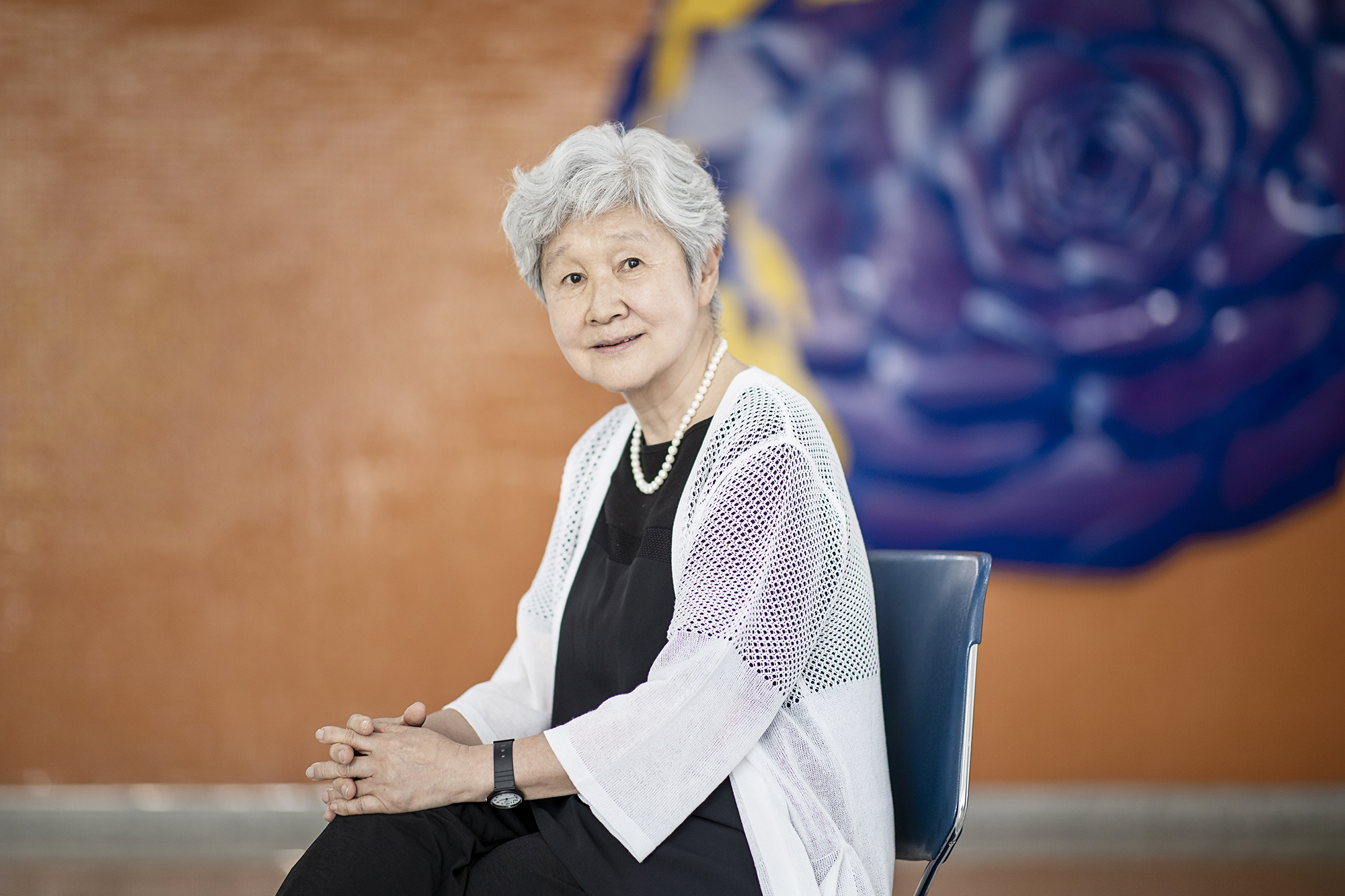
Devotion to Create Social Conditions for Rare Disease Treatment
Hyon-Ju Kim, who moved to the U.S. at the age of 25, and was recognized as a renowned doctor and professor for 27 years, decided to return to Korea in 1994. The decision was made upon invitations for Dr. Kim and her husband HughChul Kim, who studied together with her at the same department at Yonsei, to be the founding members of Ajou University Hospital. After much consideration, she decided to return to South Korea, opening the nation's first genetic clinic at Ajou University Hospital along with the Medical Genetics Department at Ajou University School of Medicine.
When even the term "medical genetics" was unfamiliar, she learned about South Korea's poor condition for treating rare diseases through numerous patients she met at the clinic. Public awareness of patients with rare diseases was low, professional medical personnel and research were lacking, and the government's understanding of problems and support was far from sufficient. Kim, who returned to her home country at 52, had to act for a change.
"At Ajou University Hospital, there was a patient with Gaucher's disease. Gaucher's disease is a genetic disorder that occurs due to the lack of glucocerebrosidase among the essential enzymes in the body. There was a treatment available; enzyme treatment for the disease was already developed in the U.S. in 1991. There was a cure, but we couldn't get it because it was not imported into Korea. I recall visiting the Genzym manufacturer in Boston to buy drugs for treatments every time I went to a conference in the U.S. It was disheartening to think about the high cost of treatment, which would cost hundreds of millions of won a year, even if it were imported."
However, amidst such adversities, some showed interest. With the support of Program Director Park Jongsung, an investigative journalism report, "Children with Gaucher's Disease, Another Shade in Society," aired on SBS TV and attracted public attention, following which an ARS fund-raising campaign for Gaucher's disease patients was launched in 1998. Over 370,000 people joined in to raise 600 million won, and ethnic Koreans in the U.S. further contributed 200 million won to support the treatment costs for all 12 patients nationwide suffering from Gaucher's Disease.
Aside from patients with Gaucher's disease, Dr. Kim was visited by numerous patients with rare and incurable diseases over the years. Each of them lacked the foundation for the most basic support, information, diagnosis, and treatment, and there was no end to the tragic stories. After many considerations, the fund-raising campaign, "Love Relay, Hope for Patients and Families of Rare Diseases" for all patients with rare diseases continued in April 2001, and the Korean Association for Rare Disease (KARD), a non-profit organization to help patients with rare diseases, was established. Beginning in May 2000, the KARD held the "Creating Social Conditions for the Treatment of Rare Diseases" symposium for ten years, identifying the difficulties of patients with rare diseases and their families to inform the public.
Thanks to such efforts, the Korean government's project to support medical expenses for rare diseases began in 2001, with provincial medical centers for rare diseases also established in 2006. Kim was involved in these steps throughout, persuading numerous people in the Ministry of Health and Welfare and the National Assembly while taking her time to share information and knowledge wherever needed. The government's support for medical expenses of rare disease patients began in 2001 with just four types of diseases, and the number of rare diseases subject to support has increased to 1,100 as of 2021. Through this, many patients with rare diseases could now ease the burden of treatment costs with hope.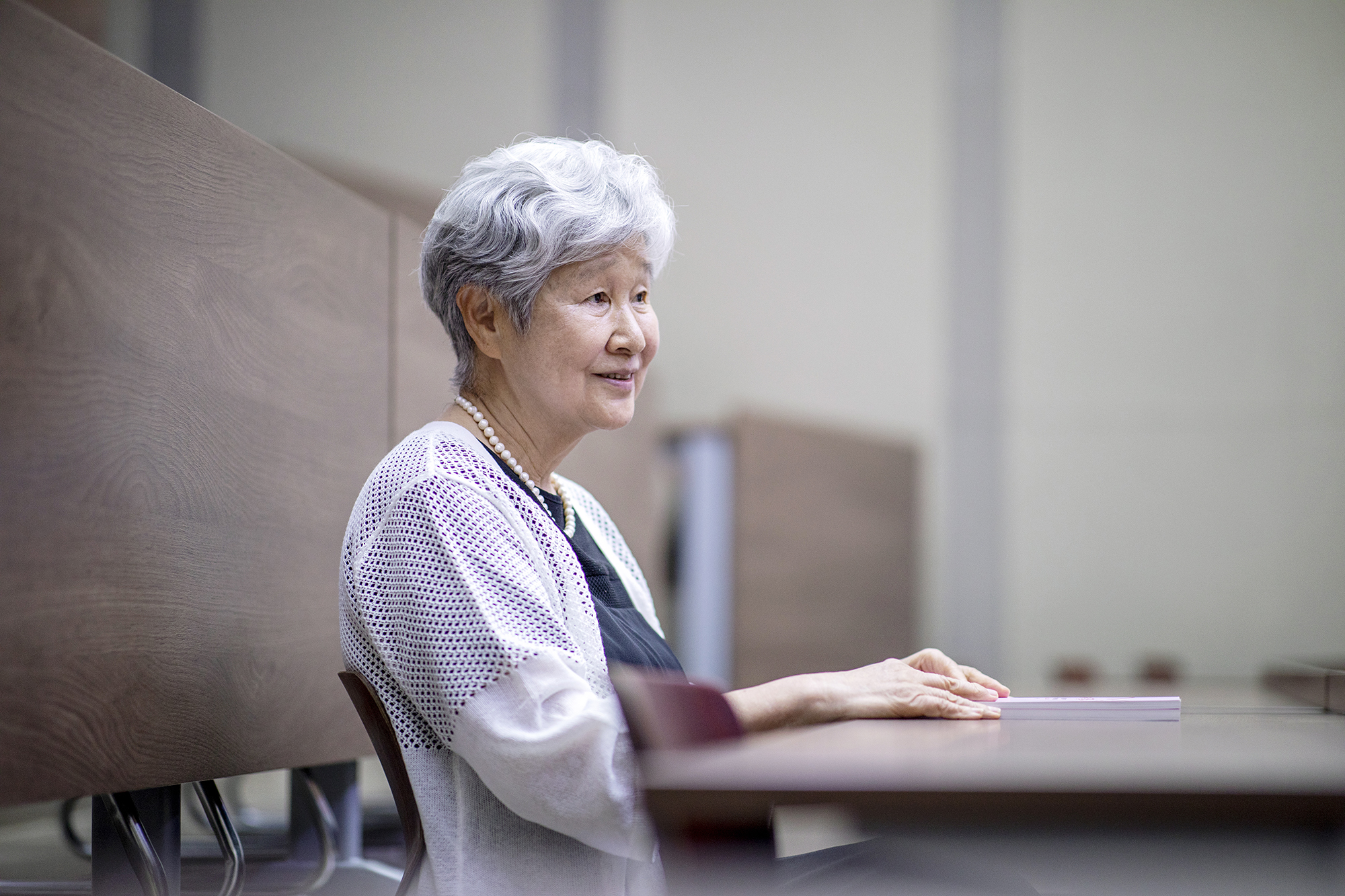
"Genetic Counseling," Practical Support for Patients and Their Families
Dr. Kim's dedication continued to eventually establish the Korean Foundation for Rare Disease (KFRD) in 2011. The foundation's establishment was never easy, with insufficient funds from the beginning. The foundation was able to be launched thanks to the will of Kim herself, who donated the entire retirement lump sum of the professor's pension she had been saved for 13 years and the contribution she received from her mother's passing, along with her partners who share the passion for improving the lives of patients with rare diseases. And now, the foundation marks its 10th anniversary. As of now, it has been 20 years since she pioneered the field of rare diseases, as the organization has served its mission since its status as an association through campaigns such as "Love Relay, Hope for Patients and Families of Rare Diseases." As the association changed its status to a foundation, Kim had much to consider. Rather than receiving donations to give financial support to the patients, she thought that the foundation has to support them through more fundamental and practical means of help, something that comes with a challenge with few attempts by others but is essential to the patients. "Genetic counseling service" was the conclusion reached.
"The transformation from the KARD to the KFRD was a change to provide more professionally and efficiently "what patients and families truly need" through 10 years of association activities. Above all, we wanted to promote and provide genetic counseling, which is vital for the early diagnosis and prevention of rare diseases. In the current medical system of South Korea, a patient would spend an average of 5 minutes with a doctor. However, in rare diseases, which are mostly genetic factors, at least 30 minutes of professional genetic counseling is required. As of now, we have little hope of expecting genetic counseling, which has yet to receive a serial code from the Korea Informative Classification of Diseases (KOICD), to be provided to patients without insurance reimbursement. But the advanced medical system in other developed countries offers genetic counseling as an essential service."
Dr. Kim, who has been offering South Korea's first genetic counseling service since 1994 at Ajou University Hospital's Genetic Clinic, has pushed genetic counseling as the main project for the KFRD for ten years with solid conviction. The foundation now offers genetic counseling services along with education courses for patients and their families. The foundation also holds seminars on genetic counseling for related medical personnel to promote the service. According to a survey of patients and their families participating in the program, 97 percent agreed with the need for genetic counseling, and 95 percent expressed satisfaction with the genetic counseling service. Additionally, more than 94 percent of the respondent gave positive answers when asked about the effectiveness of genetic counseling in identifying the disease. The need for the provision of genetic counseling, the significance of which Kim has experienced for a long time in the field, has been proven.
"Accurate genetic counseling can prevent tragedies for patients and their families. I once carried out genetic counseling with a mother of a child with muscle disease. The mother had to visit several hospitals for more than a decade before the diagnosis was made- a rare disease called "Duchenne muscular dystrophy" through genetic testing. She was misinformed that for this particular disease, there is a 50% chance of recurrence if she is pregnant with a boy, which led to abortions in her next two pregnancies. It was through our foundation's genetic counseling service the mother was identified to be not the carrier of the gene responsible for the disease; the first son's disease was merely caused by a genetic mutation, and there was no chance of recurrence within the family. If there was a pre-emptive and accurate genetic counseling provided for her, we could have alleviated her fear of passing down the disease while keeping her the precious chance to give birth to two healthy sons."
She is confident that if there is a 50% chance of developing the disease due to genetic factors, there is a 50% chance of not developing the disease. As such, Kim again emphasizes her firm conviction that genetic counseling is essential for patients with rare diseases and their families. The 3,000 cases of genetic counseling that the foundation has provided so far serve to support her conviction, as genetic counseling serves as the most helpful assistance for the quality of life of patients and their families by giving them the right to self-determination of life while allowing them to predict and prevent for the future.
May the Hope Spread to Achieve a Positive Cycle
It is most efficient and effective to provide genetic counseling with a team of specialists and genetic counselors. Therefore, when there was no medical genetics specialist course in Korea, Dr. Kim opened a medical genetics department and created a system for clinical genetics certification while supporting a graduate education course for professional genetic counselors at the global standard level for the first time in South Korea. Through these efforts, there are 56 clinical genetics specialists and 54 genetic counselors currently certified by the Korean Society of Medical Genetics and Genomics. The seed that she planted 20 years ago is now bearing fruit. From the most fundamental needs of patients and their families, professional human resources to meet their needs, and the Rare Disease Control Act legislation in 2015, Hyon-Ju Kim, throughout her life, prepared and filled the framework for the treatment of rare diseases. It was possible because she believed in the power of medicine and her dedication to patients.
Now, Kim's wish is to provide patients with more comprehensive support, including genetic counseling, research revitalization, special education, and social welfare, going beyond simply providing medical expenses for their treatments. Once genetic counseling is established in the South Korean medical system through insurance reimbursement, genetic counselors and specialists will be able to team up to provide systematic genetic counseling to more patients and their families. Just like the slogan, "Love Relay, Hope for Patients and Families of Rare Diseases," a positive cycle can occur in which one patient and family could support another, giving hope to each other.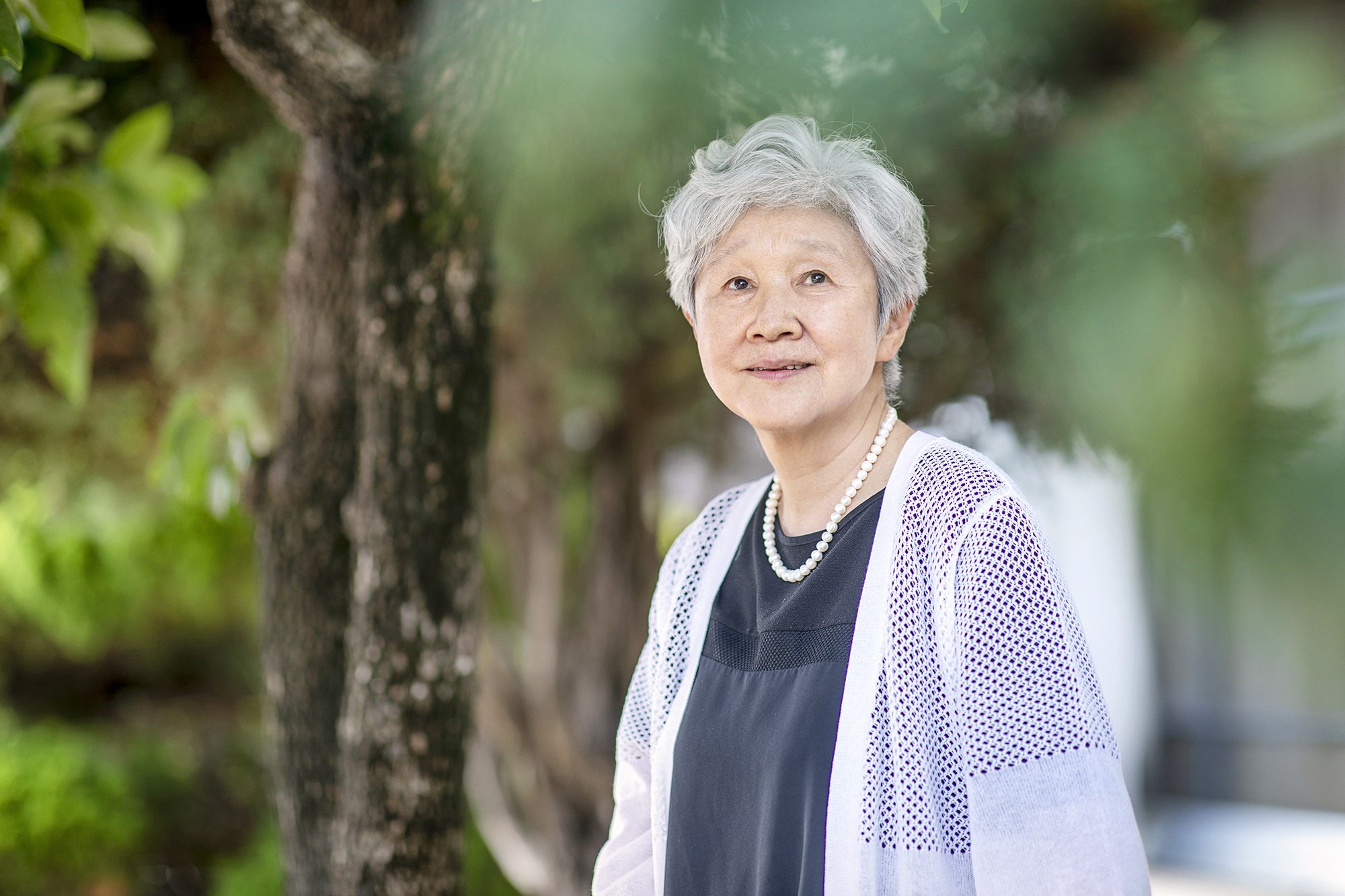
"I recall one piece of writing by a patient with a muscle disease. "Anyone's life would eventually come to an end, but there are few who live with death in his vicinity. Death is like a daily routine for patients with rare, incurable diseases, and this makes the lives of patients and their families uneasy and fearful. The patients' and parents' physical and psychological pain would be much worse if the disease were hereditary. However, passing down rare diseases can be prevented through timely genetic counseling and genetic tests." I wish for the day when genetic counseling is widely available for patients and their families so that they can choose and enjoy their new lives. Additionally, through the "Love Relay," I hope these patients can go beyond the beneficiary and help other patients, improve the environment, and support each other. Looking back, I also think that precious relationships, including alumni of Yonsei, who have given me a lot of support in difficult times, have been the driving force throughout my life. There are more challenges ahead, but I plan to do my best to fulfill my duties and obligations until the end."
"The truth will set you free," the phrase from the Bible and the founding spirit of Yonsei, is one of Dr. Hyon-Ju Kim's favorite quotes. Kim's belief that medicine, which alleviates the burden of patients and their families from diseases, is a "social science" that contributes to individuals, families, and eventually society is the truth that penetrates her life. This might just be why her image of being "the most sincere and beautiful companion" to rare disease patients has allowed her to consistently move forward most freely without hesitation.
show mobile menu
mobile menu

